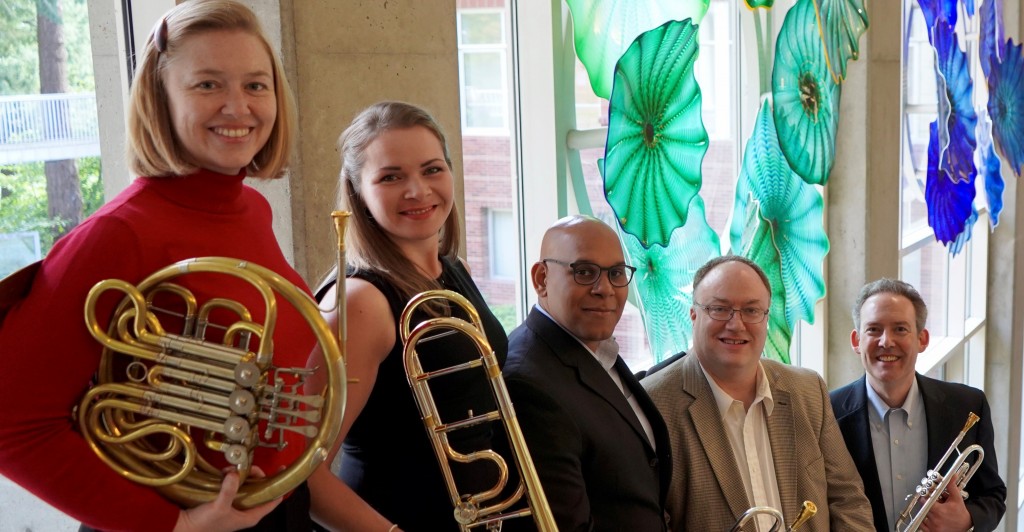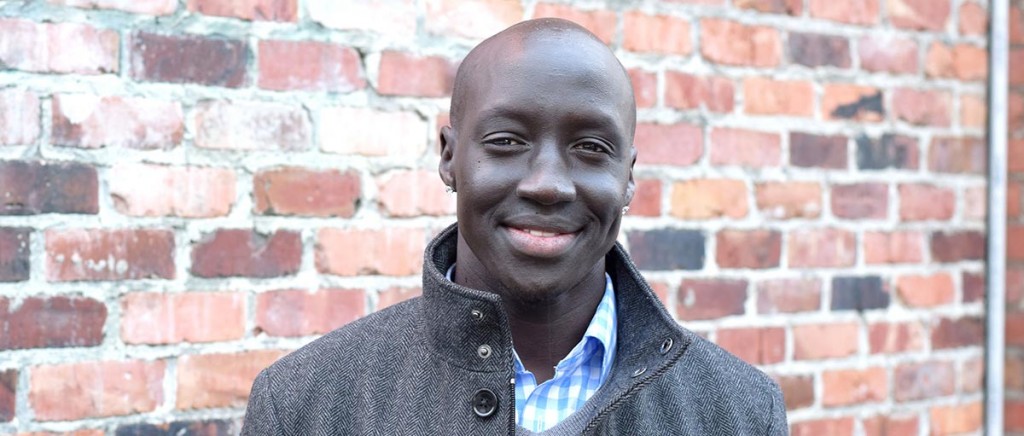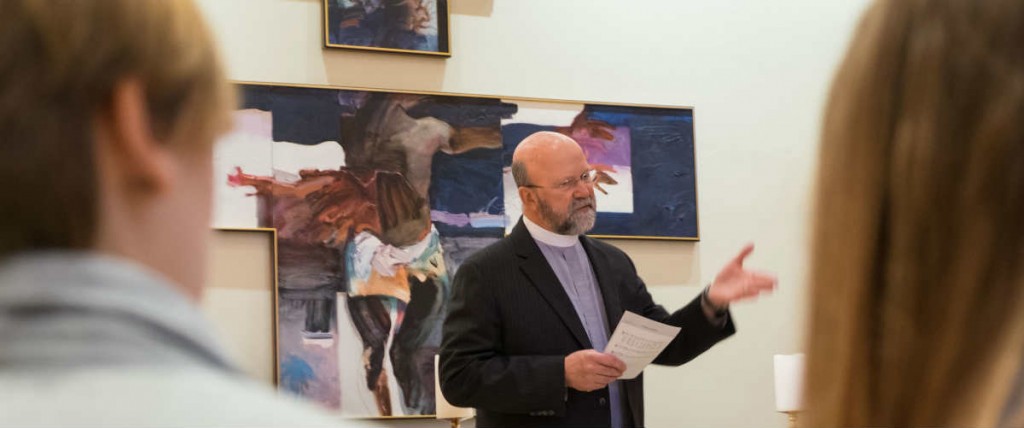Page 467 • (4,684 results in 0.167 seconds)
-

appeared in period performances with the Madison Bach Musicians playing repertoire including Bach’s Mass in B Minor. Dr. Gillie’s doctoral dissertation is entitled “Twentieth and Twenty-First Century Music for Soprano, Horn and Piano: an Original Composition, Professional Recording, and Research of Significant Pieces.” Information and recordings from the project are featured on Dr. Gillie’s website. Rebecca Good, trombone, is Lecturer of Trombone at Pacific Lutheran University where she teaches
-

Latino Studies Lecture April 6 | 6:30 p.m. | Xavier 201 Dr. María Chávez, PLU Associate Professor of Politics and Government, will give a lecture titled “The Pioneers: The Role of Public Policies and Mentors for First Generation Latino Professionals.” Inaugural PLU Undergraduate Research Symposium April 8 | 9 a.m.-5 p.m. | Anderson University Center MORE INFORMATION Hitler’s Pink Victims: Robert Oelbermann and the Persecution of Homosexuals in Nazi Germany April 19 | 7:30 p.m. | Anderson University
-

, Microsoft Teams, and other tech—few had used it for everyday instruction. Virtual singing classes were soon on Brizuela’s schedule. “We were able to explore the music a little bit differently,” Brizuela says. “Last spring was definitely, ‘Let’s figure out how to make the students successful with the limited time and materials that we have.'” Students could practice research skills and sight-singing and record themselves. Essentially, activities often shunted aside when focused on concert deadlines
-
academic journey culminated in a passion for cultural revitalization. The seed that was planted with Hall’s initial research in college became a major part of her daily life. And it was on display this past summer on the Salish Sea and in the canoe journey camp at Chief Leschi School in Puyallup. This year’s host for the journey, which allows participating tribes to share and revitalize their native cultures, was the Puyallup Tribe of Indians. It’s the first time in 20 years the Puyallups have hosted
-
. He believed that the Roman Catholic Church was straying from its original purpose, especially because of the ways that sin could be forgiven through financial donation to the church. Although he didn’t originally mean to totally split from the Catholic Church, his 95 Theses were hugely controversial and ended with him being excommunicated. After a few decades, Lutheranism began being legally recognized, and spread rapidly throughout Europe. After disagreements by Church leaders, the Book of
-

resembles the child his relatives once knew. Above all, David looks forward to seeing, holding and being with his mother. The two have communicated for the past 11 years, since his first year at PLU. He tracked her down through tireless research during his teen years in a Tacoma foster home. “As soon as I could I sent money to my mother so she could buy a phone,” he remembers. “That was the start of a fruitful relationship with her.” David talks to his mother two or three times per month. It’s not
-
eleventh president of the school.Loren J. Anderson, 1992-2012 Loren J. Anderson was born on July 6, 1945 and was raised in Rugby, North Dakota. He received a Bachelor of Arts degree in philosophy from Concordia College and a master’s degree in rhetoric and public address from Michigan State University in East Lansing. He also earned a doctorate in communication theory and research from the University of Michigan in Ann Harbor. Loren Anderson became president of Pacific Lutheran University in 1992
-

the liberal arts—A basic understanding of history, language, art, religion, culture, ethics, philosophy and science is a foundation for all more specialized knowledge, c.f., PLU’s ROTC program. Learning and research within community—Nobody pursues an education alone. We were meant to collaborate with each other. It’s built into our DNA. Even an online course assumes there’s someone on the other end helping to lead and guide us while we study in front of our laptop. The intrinsic value of the whole
-
Committee on Illumination and Text communicated digitally with collaborators. Committee members included theologians, scholars, artists, historians and more. They researched passages and held visual brainstorming sessions, then sent their work to the international artists. “They were never in the same room,” Ternes said. The artists did their own research on the text, too, and after four to eight months of back-and-forth feedback, an illumination was born. “It was not an approval process,” Ternes said
-
, the hopes and struggles of the globe enter the classroom and the hallway. We are, indeed, fortunate to have a faculty who offer their scholarly expertise to each other and to students who search for meaning in a world marked by suffering and hope. Such global awareness and commitment shapes Religion professor Samuel Torvend’s current research into how Benedictine practices with roots in the 6th century can inform contemporary efforts at sustainable living. A student author captures Dr. Torvend’s
Do you have any feedback for us? If so, feel free to use our Feedback Form.


